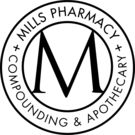Compounding Pharmacies
Posted: Nov 29 2012
11/29/2012 – For compounding pharmacies, it’s been a bad few months. They have gone from a specialized niche retailer to a feared pariah in the mind of the public, all due to the actions of a large scale compounding pharmacy in Framingham, Massachusetts, the New England Compounding Center (NECC), which is accused of creating a massive outbreak of fungal meningitis through the contamination of medications for epidural steroid injections for back pain.
As of October 9, the Center for Disease Control estimated that as many as 14,000 patients may have been exposed to the tainted drug; to date, 148 patients in Michigan alone have fallen seriously ill with fungal meningitis, and six have died. Others are now being treated for secondary problems at the site of the injections, epidural abscesses, which can develop into meningitis, as well as joint infections, according to the Michigan Department of Community Health.
The outbreak has been a tragedy all around—for those unsuspecting patients in serious pain seeking relief from a steroid injection; for the doctors who unwittingly injected them, trusting that the medicine they used would be safe and sterile; and for compounding pharmacies, which have unfairly received a black eye on their profession for something they have had no hand in.
“Compounded medicine is made-from-scratch medicine, using individual ingredients mixed together in the exact strength and dosage form, in the exact amount required by the patient,” explained pharmacist Pierre Boutros, who owns Mills Pharmacy and Apothecary in Birmingham with his brother and fellow pharmacist, Hany. “It’s custom medication to meet the patient’s needs, and it’s wide ranging. And we must always have a script (prescription) from a doctor to create a compound medication.”
Approximately 40 percent of Mills’ prescriptions are compounded medication, prepared in a sterile environment separate from the pill dispensing area and the upscale store area. Mills renovated their pharmacy, expanding into the former Quarton Market, and in the process created a “clean room built for quality assurance to accomplish a sterile environment to make sure, whether we were making a gel or an IV, everything is made in a clean, sterile environment in order to avoid contamination,” Boutros said. “We have top-of-the line sterilization machines, from a special oven to a dishwasher.”
